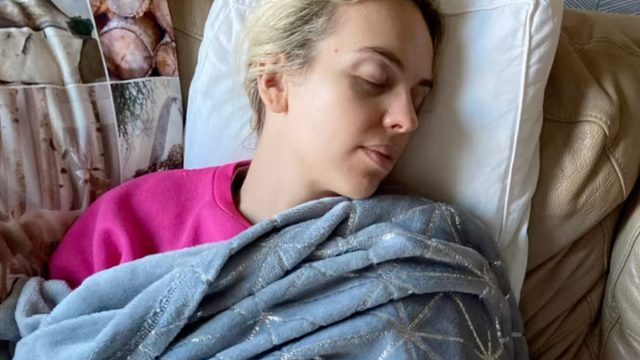Woman Who Couldn’t Urinate for 14 Months Due to Rare Condition Shares Story
Elle Adams was at a "breaking point" until she was finally diagnosed with a rare disorder.
A healthy urinary tract is vital for our overall well-being because it serves as our body’s drainage system, which helps dispose of waste and excess fluids our body doesn’t need. But one woman’s sense of normalcy was flushed down the toilet when she couldn’t pee for 14 months, causing life-altering changes. Elle Adams was a healthy 30-year-old living in East London, who suddenly couldn’t urinate no matter how much she drank. After several trips to the ER and multiple doctor visits, Adams was finally diagnosed with a rare condition called Fowler’s Syndrome and is sharing her story.
What to Know About Fowler’s Syndrome
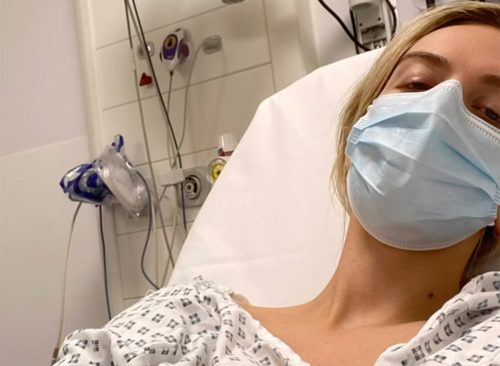
Fowler’s Syndrome is a rare condition that typically affects young women in their 20s and 30s. The condition can be difficult to diagnose and symptoms include painful or difficult urination, back pain, pain over the bladder, and not being able to pass urine for hours. According to the Bladder & Bowel Community, the condition is “a cause of urinary retention (inability to pass water normally) in young women. Urinary retention in young women is not common but can be quite debilitating. The abnormality lies in the urethral sphincter (the muscle that keeps you continent). The problem is caused by the sphincter’s failure to relax to allow urine to be passed normally. There is no neurological disorder associated with the condition and up to half the women have associated polycystic ovaries.”
Adams Didn’t Think Anything Was Wrong at First

In 2020, the London based content creator brushed off concerns that anything serious could be wrong. “I woke up and just couldn’t go at all and I’d never had that before,” she told MyLondon. “I thought, this is really odd, but just carried on with the day, and tried to forget about it. I left it about an hour and I thought, I just can’t go. I’m at home, the tap’s running, I couldn’t be more relaxed. I tried absolutely everything.” As the day went on, she became more alarmed and went to St. Thomas Hospital in London where she was told she had 800ml in her bladder. Usually, the urinary bladder can hold up to 500 ml of urine in women and 700 ml in men, according to the National Institutes of Health (NIH).
Doctors Gave Adams an Emergency Catheter
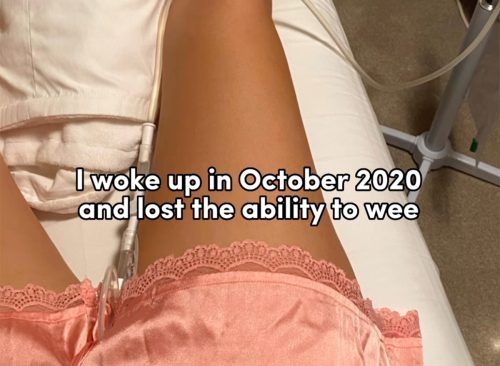
When it was discovered that Adams had so much urine in her bladder, doctors gave her an emergency catheter, which is a tube that’s inserted into the bladder and drains urine. After four hours in the hospital, doctors told Adams they could either take the catheter out and see if she could urinate on her own, or go home and return to hospital in three weeks. “They took it out and I still couldn’t go,” told MyLondon. “I was taught to self-catheterise by a nurse, but she did it really quickly, and I couldn’t do it myself.” The doctors told her that ‘this is just life now’ and that her next appointment would be in three months.
Adams Was Told She’s Be “Fine in a Few Weeks”
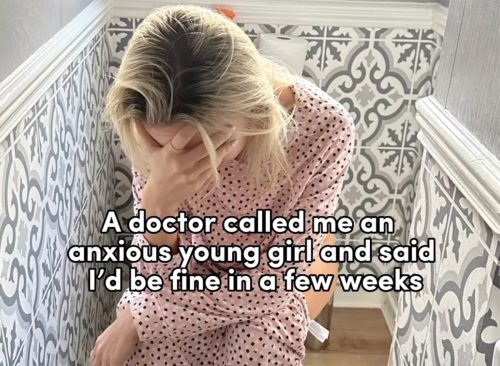
A nurse who saw Adams realized something major was happening and urged her to get another opinion, however, experts didn’t take her condition seriously. “The nurse begged the consultant to see me that day, so I saw them in the end,” she said. “They told me ‘you’ve drank too much’, but I drank barely anything. They then said ‘you’re also just an anxious young girl, I’m sure it will be fine in a few weeks.”
Adams Went 14 Months Without Urinating on Her Own and Had No Diagnosis
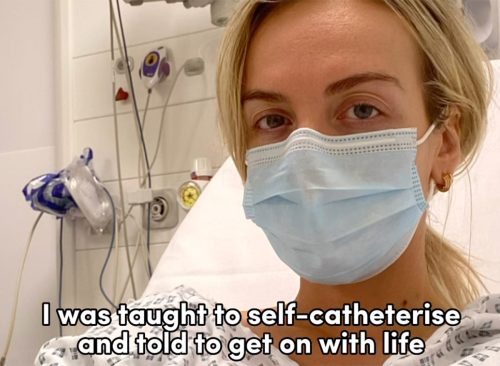
After the runaround, Adams didn’t return to the clinic for 14 months. During that time period, she administered catheters herself, but went back when she was having an issue with the catheter. It was then she was finally given a diagnosis. “I was told how I was likely suffering from Fowler’s,” the New York Post reports. “I was talked through the treatment options which were minimal — we did try medication but it just made no difference,” she said.
Sacral Nerve Stimulation Treatment

According to the Post, Adams was told her “only option” was to go through Sacral Nerve Stimulation (SNS), a “therapy that addresses the communication problem between the bladder/bowel and the brain that may be causing symptoms,” according to the Bladder & Bowel Community. In January 2023, Adams went through the procedure for SNS and she shared, “It is not life-changing, but it can help.” She added, “I catheterize a lot less, around 50% less. It has made my life easier, after two years of hell it is all I can ask for,” she said. “I am doing well, I am on the more well side of Fowler’s. I am grateful for the difference, I am feeling better than I was.”
Adams is Staying Positive
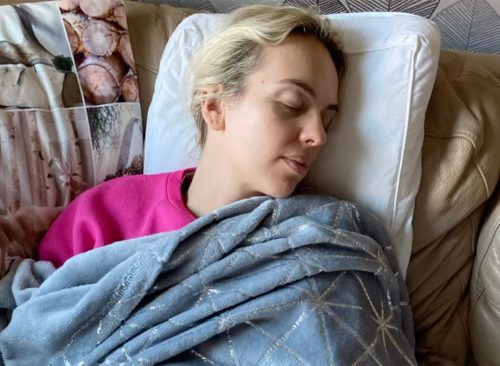
Adams’s life has forever changed, but she’s using her story to help raise awareness for the condition. “Fowler’s is under researched and unheard of,” she told MyLondon. “I really want to get the word out there. I always struggle in my own content with that line of awareness. But I want to portray that you can be positive, and live a nearly normal life, but also show people how bad it is. There is hope for people it’s just happened to.”
